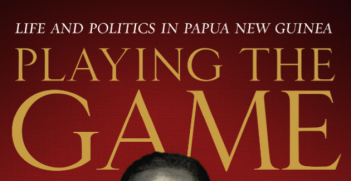Amnesties, Accountability, and Human Rights

It is particularly important for lawyers to read Renée Jeffery’s new book on amnesties. If there is an article of faith or catechism for transitional justice lawyers, it is that amnesties violate international law in letter and spirit. Moreover, most of us hold a tightly held belief that amnesties are a ruinous path for a society in the longer term, breeding a culture of impunity.
Any orthodoxy should be constantly interrogated especially when international law, to a large part, rests on custom or actual and evolving state practice.
What Jeffery finds is that despite intense pressure for accountability over the last thirty years, the use of amnesties has not declined but increased in use. Amnesties can be used in complex ways: as mechanisms to facilitate transitions to democracy, to reconcile divided societies or to end violent conflicts. Jeffery understands amnesties as instruments of politics and therefore offers a much more red-blooded analysis of the politics of transitions than most authors. She finds that amnesties have been ‘adapted to suit the competing demands of contemporary post-conflict politics and international accountability norms.’ Primarily, they can buy communities some time. An amnesty law might not be the end of a justice cascade over the longer term, just as prosecutions do not ‘return societies to civilization.’
The distinctive feature of this book is the quality of its research and the blending of both quantitative data sets and case studies in an interpretative approach. It is truly wide-ranging in time and space. The author’s knowledge of the Asia-Pacific context is particularly strong and the Aceh chapter is a highlight, with the ethical struggles of that political settlement laid out in concise terms.
Jeffery challenges the practice of human rights lawyers to privilege accountability for rights violations over a broader effort to realise rights in a post-conflict setting. ‘No impunity for war crimes in Timor Leste,’ we cry – but where is the compensation for ongoing breaches of economic rights for Timorese citizens affected by the conflict? And what happens to Syria if an exit deal for Bashar al-Assad is now the only option?
Is there even a future for transitional justice? So asks the January 2015 edition of the leading forum, the International Journal of Transitional Justice. On the question of amnesties, Makua Mutua notes that if we are aiming for societal transformation towards rights fulfilment, then ‘dogmatic universality is a drawback to an imaginative understanding of transitional justice’.
In matters of social transformation, close attention must be paid to context and location. That is why it is intellectually indefensible to create a transitional justice blueprint ready for export. This is the Achilles’ heel of the dominant transitional justice programs based in the West, which have become a cottage industry. This approach has spawned a college of professionals with prescriptive country antidotes at the ready. This is a paternalistic and imperialistic approach that should be rejected out of hand. What will work in country X in Africa may completely fail in country Y in Asia. The trick is for thinkers and actors in transitional justice to reconstruct notions of transitional justice that are informed by a wider moral and social universe.
Transitional justice as a field of study is still very young and the impact of the post-conflict decisions made in particular countries and times are still playing out. Longitudinal reflections on transitional justice interventions over time are particularly important, as we are starting to see in relation to the South African and Chilean truth commission processes.
If there is a future for the field of transitional justice, it is contributions to the literature like this one: which add rigour to our definitions, precision to our inquiries and insight to our current ethical dilemmas in post-conflict justice. As Mutua argues: ‘Old orders and their entrenched elites reside in the sinews of society and are nearly impossible to uproot. Vested systems of dehumanization and the values of dystopia have an uncanny capacity to defy transformation.’
Jeffery’s work forces us to really look at those deep roots and engage with the politics expressed by the persistence of amnesties. As a human rights lawyer, I may still resist the idea of amnesties but I am forced to consider their persistence in much more nuanced and evidence-based terms as a result of Jeffery’s body of work.
Renée Jeffery, “Amnesties, Accountability, and Human Rights”, University of Pennsylvania Press, 2014
Dr Susan Harris Rimmer is an Associate Professor at the Griffith Law School, Griffith University.





